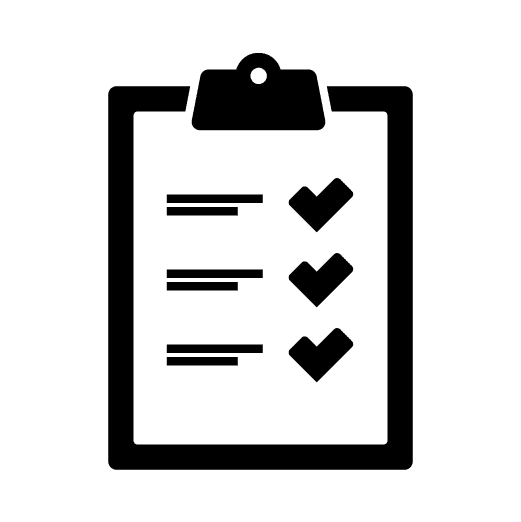The Algerian authorities are leading a relentless crackdown on citizens for expressing any form of dissent. Be it participants in protest marches, journalists working for independent media, or people posting on social media, no-one in Algeria is safe from the claws of repression.
Since the “Hirak” weekly protest movement broke out in 2019, first opposing a fifth mandate of then-President Abdelaziz Bouteflika and then evolving into a wider response to the lack of political freedom in Algeria, hundreds of people have been arbitrarily arrested and detained. The authorities targeted people they considered leaders of the protest movement and those reporting on it, but after the weekly protests were banned due to Covid restrictions, the authorities expanded their crackdown. Young and old; urban and rural; activists and school children, no matter the gender, the Algerian authorities are going after anyone exercising their right to freedom of expression, assembly or association in a way deemed threatening to the government.
The authorities have used various means to broaden their repression, including making repeated arbitrary arrests; imposing heavy fines; pressuring dissidents’ family members for information on their whereabouts; and in at least one case, abducting a fleeing activist with refugee status and forcibly returning him back to Algeria to face trial on bogus charges. Authorities have also employed the tactic of pre-trial detention beyond the legal limit, have meted out lengthy prison sentences, and have subjected detainees to torture and other ill-treatment.
According to local watchdog groups, over 200 people remain detained in Algerian prisons for expressing dissent, often sentenced under problematic articles in the Penal Code such as “harming” the national security, “undermining national unity”, “offending” public officials, “incitement” to unarmed gathering, spreading fake news, and terrorism.
Amnesty International interviewed former detainees as well as the families and lawyers of those who remain behind bars. The individual stories highlighted here underscore the suffering people have endured at the hands of the Algerian authorities. In documenting these experiences, Amnesty International urges support in demanding the Algerian authorities grant the urgent and unconditional release of those arbitrarily detained, halt the harassment of opponents and perceived critics outside prison, and ultimately reform the legislation that enables serious violations of people’s rights to freedom of expression, assembly and association.
Freedom of Expression
Authorities have detained people just for peacefully expressing their opinions, including journalists and citizens penalised for social media posts. Over the past two years, the Algerian authorities have prosecuted, arrested, or detained at least 12 journalists and media workers.
Algerian authorities are engaged in an unrelenting assault on independent media and all critical voices, typically using bogus charges such as “spreading fake news” and “offending” public officials. This is in clear contrast to Algeria’s commitments under Article 19 of the International Covenant on Civil Political Rights as well as Algeria’s constitution, which protects the rights to freedom of expression and freedom of the press.
Freedom of Assembly
Authorities have also imprisoned people for protesting, many were part of the Hirak demonstrations, which erupted in February 2019 calling for political reform.
During the Hirak protests, Algerian authorities arbitrarily arrested, and unlawfully prosecuted and detained political and civil society activists and journalists based on vaguely worded Penal Code provisions such as “harming the security of the state” and “armed and unarmed gathering”, which have both been misused against peaceful protesters. In May 2021, authorities used Law No. 91-19 on public meetings and demonstrations to halt the Hirak protests by requesting prior declaration for every protest.
Freedom of Association
Algerian authorities are cracking down on members of associations or groups deemed as in opposition of the government, as well as the groups themselves. People have been detained for their membership to or links with associations, many of them prosecuted on bogus charges of terrorism.
In 2021, the authorities shut down the well-known civil society organization, Youth Action Rally (Rassemblement Actions Jeunesse), on accusations of carrying out activities that do not match its status. In 2022, the authorities suspended an opposition party, forcing it to cease all activities and close its premises, and threatened two other parties with a similar fate, claiming that the parties had breached the law by organizing “unauthorized gatherings”.
Terrorism charges used to shut down groups and prosecute their members
The Algerian authorities have been increasingly using vaguely worded anti-terrorism charges to prosecute people for being members of groups deemed as oppositional. In 2021, the authorities labelled the political organization Rachad and the political group Movement for the Self-Determination of Kabylie (MAK), as “terrorist entities”. In the same year, the Penal Code was amended to expand the definition of terrorism to include “attempting to gain power or change the system of governance by unconstitutional means”.
The people you see above are just a few of the hundreds of people who have been punished merely for exercising their rights to freedom of expression, peaceful assembly, and association. As of August 2023, there remained dozens of activists, journalists, and state critics in Algerian prisons.
Amnesty International calls on the Algerian authorities to:

Immediately release all those arbitrarily detained and stop the criminal investigations of people simply for peacefully exercising their human rights including freedom of expression, association and peaceful assembly.

Repeal Law No. 12-06 on Associations and elaborate a new law in line with Algeria’s Constitution and its international obligation to respect and ensure freedom of association

Amend all provisions that criminalizes peaceful association and assembly including Articles 79, 95 Bis, 97, 98 and 100 of the Penal Code. Amend Articles 15, 17, 19, 23 of Law No. 91-19 on Public meetings and Demonstrations to bring it in line with international human rights law.

Amend or repeal all provisions which criminalize free expression, including Penal Code Articles 74, 75, 96, 144, 144 Bis, 146, 196 bis and 290 bis.


